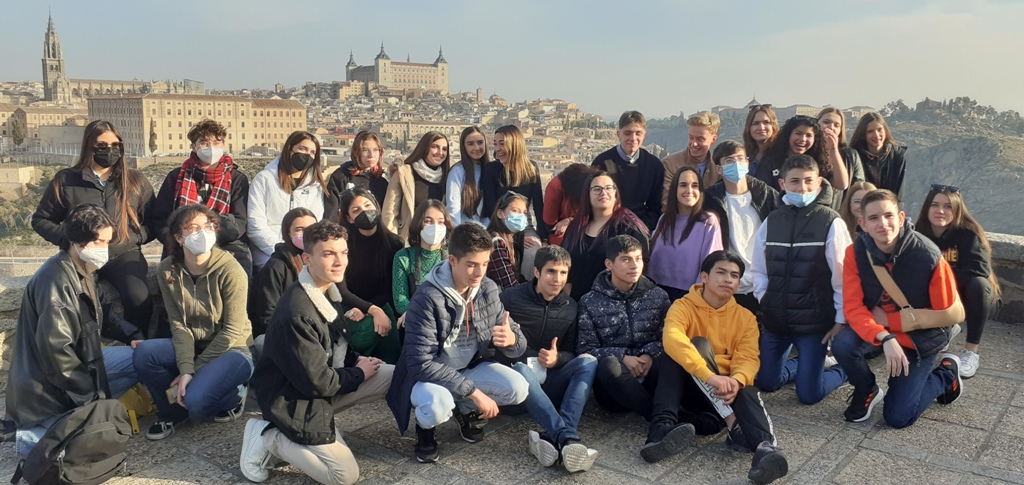Mobility in Spain
The topic of the first mobility for students and teachers was: “We are different but together”. All activities focused on recognising stereotypes, understanding their influence on the society and looking for various ways to break them. The stay in Spain was also an opportunity to familiarise with the rich heritage of the La Mancha region created throughout history by three different cultures: Jews, Muslims and Christians.
The topic of the first mobility for students and teachers was: “We are different but together”. All activities focused on recognising stereotypes, understanding their influence on the society and looking for various ways to break them. The stay in Spain was also an opportunity to familiarise with the rich heritage of the La Mancha region created throughout history by three different cultures: Jews, Muslims and Christians.
The methodology was based on workshops including activities such as: educational and team building games, discussions and trips. The mobility started with a student integration workshop where the project participants had a chance to get to know each other and compare their opinions on popular stereotypes. Discovering the cultural heritage of Hellin took place through a city-game for students during which they were working in international groups on particular tasks connected with different places significant for the history of the town. The students consolidated the previously gained knowledge during the guided tour of Hellin. One of the visited places was the museum showing the local customs of celebrating the Holy Week with the traditional drummer procession. The consequence of this visit was a drum workshop enabling the students to see how art can become the language of cultural integration. The knowledge of the multicultural history of the region was developed during two excursions: to an archeological park and to Toledo. The last workshop was based on drama activities aiming at breaking stereotypical thinking. The final part of the mobility was a traditional dinner prepared by the host families for all the participants.
Apart from the students and teachers from the participating schools, parents and local authorities were involved in the activities. All the project actions were compatible with the schools’ educational programmes of integrating different cultures as well as building a space of openness to diversity. The participants had a chance to discover the value of Spanish cultural heritage and explore the main topic of the project. Exploring the history of the region helped students to understand how important cultural diversity is for building the heritage itself. It is crucial nowadays when the region again became the area of multicultural societies.
Living with the Spanish families students had an opportunity to experience their everyday life, learn some Spanish and try the local food. The students had a possibility to practise their English and make new friends.
Trips and activities in multicultural groups helped them break national barriers and build relationships. Working on the topic of stereotypes showed the students how important territorial proximity and history of the countries are in the process of creating stereotypical views. A surprising discovery for them was how many stereotypes about each other Italian and Spanish students could indicate and how hard it was for them to point out any stereotypes about Poles. It taught them how important it is for the authenticity of learning about the world to depart from stereotypical thinking.
The workshops let the participants promote cooperative learning and critical thinking. All activities involving the students made them realise the despite language barriers, cultural differences, different lifestyles and social backgrounds, friendly and effective cooperation is possible and diversity is not an obstacle but a great value.












